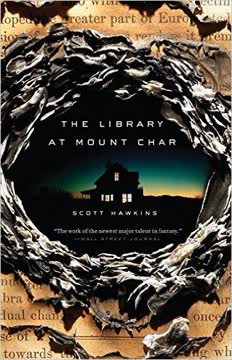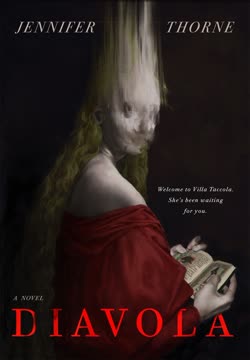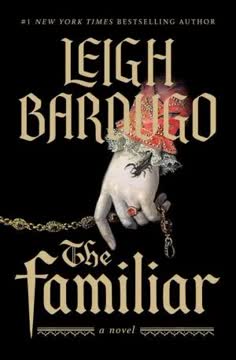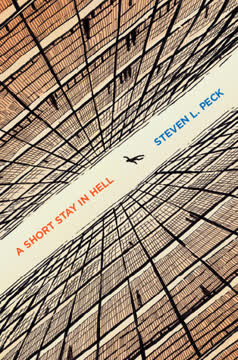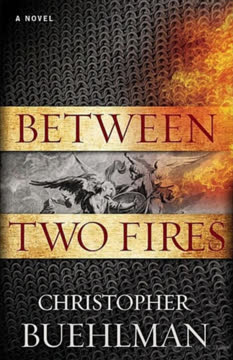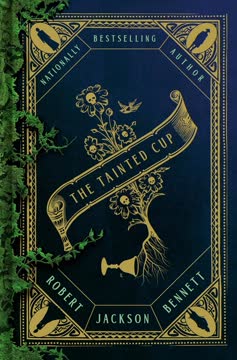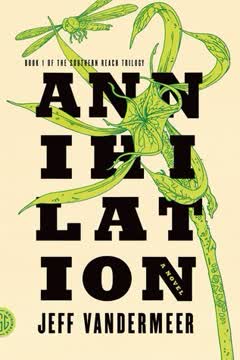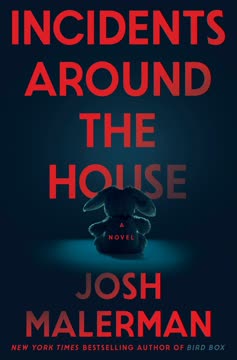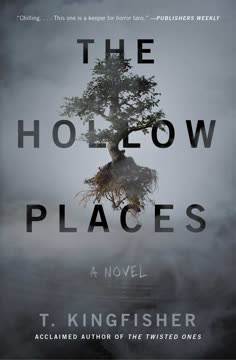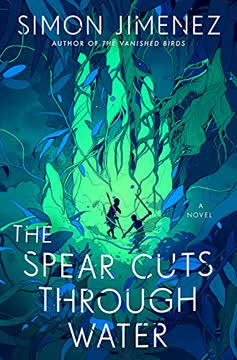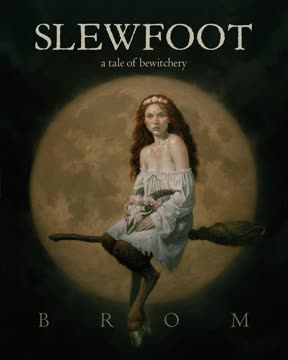Plot Summary
Blood on the Path
Carolyn, barefoot and blood-soaked, walks a lonely road, the obsidian knife of her latest murder hidden at her back. She is one of the "librarians," children adopted by a being they call Father after their parents' deaths in a mysterious cataclysm. Father, ancient and powerful, raises them in his Library, each assigned a "catalog" of knowledge—Carolyn's is languages. The children's American pasts fade as they are shaped by Father's brutal lessons. Carolyn's memories of innocence are haunted by violence, and her heart is marked by loss and the need to survive. As she returns to Garrison Oaks, the home she both loves and hates, she prepares for a confrontation that will test everything she has learned.
The Children of Father
Father's children were once ordinary American kids, but after a devastating attack, he takes them in, erasing their old lives. Each is assigned a catalog—murder, healing, animals, mathematics, and more—studied with relentless discipline and often cruelty. Carolyn's early rebellion is met with calculated lessons, including a summer spent with deer, Isha and Asha, whose deaths at David's hands mark her forever. The children's training is harsh, filled with pain and fear, but it forges them into something other than human. Their bonds are complex: love, rivalry, and trauma intertwine as they grow under Father's watchful, merciless eye.
The Bronze Bull's Lesson
When David shares forbidden knowledge with Margaret, Father's wrath is swift. David is locked inside a bronze bull and roasted alive, a punishment both physical and spiritual. The children are forced to watch, learning the price of disobedience and the limits of mercy. David's resurrection is agonizing and incomplete, leaving him changed—more dangerous, less human. The bull becomes a symbol of Father's power and the trauma that binds the siblings. Carolyn, witnessing this, internalizes the lesson: survival requires adaptation, and compassion is a liability. The bull's fire forges monsters and victims alike.
The Denial That Shreds
After Father's disappearance, the librarians find themselves barred from the Library by a mysterious force—the reissak ayrial, a "denial that shreds." Only Americans, untouched by the trauma of the bull, can cross the boundary. The siblings gather, desperate and divided, seeking answers. Nobununga, a tiger and ancient ally of Father, attempts to breach the barrier and fails, dying in the process. Michael's grief is raw, and Carolyn's resolve hardens. The reissak is both a literal and emotional wall, anchored by a token and triggered by shared suffering. The children's isolation deepens, and Carolyn's plan begins to take shape.
The American Interlude
Steve, a plumber with a criminal past, is drawn into Carolyn's orbit when she recruits him for a burglary. Promised a fortune, he is manipulated into helping her retrieve the reissak's token. Their partnership is uneasy, marked by Steve's skepticism and Carolyn's calculated charm. The job goes awry, resulting in murder and Steve's framing for a crime he didn't commit. As he is swept into the librarians' world, Steve's guilt and longing for redemption surface. His Buddhist aspirations are tested by violence and betrayal, and he becomes both pawn and catalyst in Carolyn's larger scheme.
The Heart Coal
Living with Mrs. McGillicutty, the librarians observe the quiet agony of her "heart coal"—the unresolved grief for her lost son. Jennifer, the healer, explains that such wounds can never truly heal; the memory diverges from reality, and the illusion is all that sustains her. Carolyn recognizes her own heart coal: the memory of Steve, her childhood friend, and the innocence lost to Father's machinations. The theme of adaptation recurs—one can adjust to anything, even horror—but the cost is a hardening of the soul. Compassion flickers but is always at risk of being extinguished.
The Visitor from the East
Nobununga, the ancient tiger, arrives to investigate Father's disappearance. His presence is both awe-inspiring and tragic; he is a living relic of the third age, loyal and wise. Attempting to breach the reissak, he is undone by the same trauma that binds the librarians. His death devastates Michael, who loses his mentor and friend. The event underscores the inescapability of the past and the limits of even the most powerful beings. Nobununga's fall is a warning: the world Father built is unraveling, and the children must face the consequences of their inheritance alone.
The Anatomy of Lions
To secure passage for Steve, Carolyn strikes a bargain with Dresden, a captive lion. In exchange for his daughter's freedom, Dresden demands vengeance on his captor, Marcus. The librarians orchestrate a bloody retribution, feeding Marcus to the lions. The episode is both a display of Carolyn's ruthlessness and a meditation on justice—who deserves to suffer, and who decides? Steve, wounded and traumatized, is saved by the lions, who become his unlikely allies. The animal catalog's power is revealed, and the lines between human and beast blur. The cost of entry to the Library is paid in blood and pain.
The Price of Entry
Steve's attempt to retrieve the reissak's token is met with a gauntlet of supernatural dogs, the sentinels of Garrison Oaks. Mauled and near death, he is saved by Dresden and Naga, the lions, who honor their bargain. Inside the house, Steve tends to his wounds and those of Naga, forging a bond of mutual respect. The dead ones—reanimated but soulless—haunt the neighborhood, a reminder of the price of Father's magic. Steve's ordeal cements his role as Carolyn's chosen American, the only one who can cross the barrier. His compassion for the lions and the dead is a quiet act of defiance.
The Library's Secret War
As the world outside unravels—riots, famine, and political chaos—the librarians' war turns inward. David, now monstrous and nearly unstoppable, slaughters soldiers and civilians alike. Carolyn's plan comes to fruition: she manipulates Steve, Erwin, and the others to set the stage for David's downfall. The Library is besieged, but its true nature—a superset universe, a fortress of knowledge and power—renders it invulnerable. In a final confrontation, Carolyn uses the reissak and Erwin's marksmanship to trap David in a moment of infinite agony, transforming him into the new sun: a black sphere radiating anguish, the dawn of a new age.
The Black Sun Ascends
With David as the black sun, the world is plunged into darkness. Plants die, famine spreads, and society teeters on collapse. Carolyn, now head librarian, is both savior and destroyer. She offers Steve any gift he desires, but he asks only for the safety of his dog, Petey. Steve's compassion and self-sacrifice become the catalyst for change. Recognizing the limits of her own coldness, Carolyn is moved to restore the sun, food, and hope to the world. The lesson is clear: power without empathy is ruinous, and even gods must learn to care for the small things.
The Guilt That Endures
Haunted by the past, Carolyn seeks the "font of perfect memory," reliving Adoption Day and the trauma that shaped her. She recalls Steve's childhood heroism, her own transformation, and Father's manipulations. The heart coal—the memory of lost innocence and love—remains, fueling both her strength and her sorrow. Father, resurrected, offers her a choice: change the past, abdicate, or let go. Carolyn confronts the reality that some wounds never heal, and that the price of survival is the loss of self. The Library endures, but its master is forever marked by what she has done and what she cannot undo.
The Final Catalog
Father, returned from death, reveals the true nature of the Library and the endless cycle of power and loss. Regression completeness ensures that every answer births a deeper mystery; the work is never finished. Carolyn inherits not only the Library but the loneliness and responsibility that come with it. The black folio, the power to alter the past, is hers, but its use is fraught with peril. The ghosts of her siblings, her parents, and her own former self linger in the stacks. The age of Father ends, and the age of Carolyn begins, uncertain and fraught with possibility.
The Second Moon
After months of darkness and despair, Carolyn resurrects Michael, the only sibling she can bear to save. Together with his animal companions, they find refuge in a quiet farmhouse. As the new sun rises—Steve, transformed by compassion—the world begins to heal. Food falls from the sky, the earthquakes cease, and the Library retreats from the world's gaze. Carolyn, wrapped in a pink robe and cartoon slippers, watches over her sleeping friends, smiling for the first time in memory. The second moon, the moon of kindled hope, marks the beginning of a new era.
The Gift of Compassion
Steve's repeated suicides force Carolyn to confront the limits of her own coldness. His final act—self-immolation—awakens her to the necessity of compassion. She realizes that power alone cannot heal the world; only the willingness to care for others, even at great personal cost, can do that. Inspired by Steve's example, she restores the sun, the seasons, and the possibility of happiness. The lesson is hard-won: survival is not enough; one must also choose to love, to forgive, and to hope. The Library's greatest secret is not knowledge, but kindness.
The End of the Fourth Age
With Father gone and the old order ended, Carolyn stands as the new Sehlani, head librarian and guardian of the world. The Library's doors are closed, but its influence endures. Erwin, the soldier, is recruited for new tasks; Michael, the gentle, returns; and the world, battered but unbroken, turns toward the future. The age of monsters and martyrs is over. In its place, a fragile hope takes root. Carolyn, at last, allows herself to smile—not as a god, but as a woman who has learned, through suffering, the value of mercy.
Characters
Carolyn
Carolyn is the central figure of the story, a woman forged by trauma and relentless discipline under Father's tutelage. Assigned the catalog of languages, she becomes a master of communication, deception, and adaptation. Her relationships with her siblings are complex—marked by rivalry, affection, and shared suffering. Carolyn's psychological journey is one of hardening: she learns to hide her true self, to suppress compassion, and to do whatever is necessary to survive. Yet, beneath her calculated exterior, the memory of Steve and the loss of innocence—the "heart coal"—remains. Her arc is one of transformation: from victim to architect of a new world, from coldness to the rediscovery of empathy. Her ultimate victory is not in power, but in the choice to heal rather than destroy.
Father (Adam Black)
Father is a being of immense age and power, the architect of the Library and the children's transformation. His methods are brutal—punishment, resurrection, and psychological manipulation are his tools. He assigns each child a catalog, shaping them into instruments of his will. Father's relationship with his "children" is complex: he is both protector and tormentor, loving and monstrous. His ultimate goal is succession—finding an heir strong enough to bear the burden of the Library. Father's psychoanalysis reveals a being who has emptied himself in the pursuit of mastery, haunted by the cost of his own choices. His final lesson to Carolyn is the necessity of hope and the inevitability of loss.
David
David is Father's favored son, assigned the catalog of war and murder. His early kindness is burned away by the bull's fire and Father's relentless training. David becomes a force of violence, feared by his siblings and nearly unstoppable. His relationship with Carolyn is antagonistic, marked by rivalry and abuse. David's psychological profile is that of a child broken by trauma, remade as a weapon. His inability to conquer his own monstrousness is his undoing; he becomes the black sun, a symbol of unending agony. David's fate is a warning: power without compassion is self-destruction.
Steve Hodgson
Steve is an American plumber with a criminal past and a longing for redemption. Drawn into Carolyn's world by chance and manipulation, he becomes both pawn and hero. Steve's compassion—for animals, for the dead, for Carolyn herself—sets him apart from the other characters. His Buddhist aspirations and enduring guilt over past failures drive his actions. Steve's repeated sacrifices, culminating in self-immolation, awaken Carolyn to the necessity of empathy. His arc is one of quiet heroism: he saves the world not through violence, but through the gift of compassion.
Jennifer
Jennifer is the master of the white catalog—medicine and resurrection. Her gift is both blessing and curse; she is forced to heal and revive her siblings, even when it means enabling further suffering. Jennifer copes with trauma through drugs and detachment, but her kindness endures. She is one of the few to reach out to Carolyn, offering friendship and understanding. Jennifer's psychoanalysis reveals a woman drowning in fear, yet still capable of love. Her death marks the end of innocence and the triumph of necessity over mercy.
Michael
Michael is assigned the animal catalog, spending much of his life among beasts. His speech is halting, his manner gentle, and his loyalty unwavering. Michael's friendship with Carolyn is one of the few sources of genuine warmth in the story. His grief at Nobununga's death and his own survival are testaments to his resilience. Michael's psychological profile is that of a child who never fully adapts to Father's world, retaining a core of innocence. His return at the end signals the possibility of healing and the endurance of kindness.
Margaret
Margaret is the master of the gray catalog—death and the forgotten lands. Her repeated murders and resurrections erode her sanity, leaving her a ghost of herself. Margaret's relationship with David is symbiotic and destructive; together, they embody the worst of Father's legacy. Her longing for the bull's fire is a desperate attempt to feel, to return to herself. Margaret's psychoanalysis is that of a soul lost to trauma, seeking meaning in suffering. Her final request is both tragic and redemptive.
Erwin Leffington
Erwin is a retired Army sergeant major, haunted by violence but committed to doing what is right. His encounter with Carolyn and the librarians tests his principles and resourcefulness. Erwin's relationship with Steve is one of mutual respect; with Carolyn, it is wary but ultimately collaborative. His psychoanalysis reveals a man who has seen too much, yet refuses to surrender to despair. Erwin's role is that of the outsider who becomes indispensable, a bridge between worlds.
Nobununga
Nobununga is a being from the third age, a tiger of immense wisdom and power. His loyalty to Father and his mentorship of Michael are central to his character. Nobununga's attempt to breach the reissak and his subsequent death are moments of profound loss. His psychoanalysis is that of a noble creature undone by forces beyond his control, a symbol of the old world's passing.
Mrs. McGillicutty
Mrs. McGillicutty is an American widow whose quiet agony over her lost son embodies the theme of the heart coal. Her kindness to the librarians and her obliviousness to their true nature are both comic and poignant. Mrs. McGillicutty's psychoanalysis is that of a woman sustained by illusion, unable to move on but unwilling to let go. She is a reminder that the greatest wounds are often invisible.
Plot Devices
The Library
The Library is both setting and symbol—a superset universe containing all knowledge, guarded by Father and his chosen heirs. Its structure—twelve catalogs, endless stacks, and hidden doors—mirrors the complexity of the characters' psyches. The Library's rules are mutable, its defenses impenetrable, but its greatest danger is the isolation it imposes. The Library is a place of both wonder and horror, a testament to the costs of mastery. Its narrative structure allows for nonlinear storytelling, flashbacks, and the blending of myth and reality.
The Reissak Ayrial
The reissak ayrial is a supernatural perimeter defense, anchored by a token and triggered by shared suffering. It serves as both literal and metaphorical wall, keeping the librarians out of their own home and forcing them to confront their past. The reissak's effects—pain, bleeding, madness—mirror the psychological wounds of the characters. Its resolution requires both cunning and compassion, and its presence foreshadows the ultimate confrontation between Carolyn and David.
Resurrection and Immortality
Father's mastery of resurrection is both gift and curse. The children's repeated deaths and revivals erode their humanity, teaching them to adapt to anything—even horror. Resurrection is used as punishment, reward, and tool of control. Its narrative function is to explore the limits of endurance and the cost of survival. The device also allows for nonlinear time, memory, and the blurring of life and death.
The Heart Coal
The heart coal is the unresolved grief or longing that sustains a person in the absence of hope. It is embodied in Mrs. McGillicutty's lost son, Carolyn's memory of Steve, and the children's longing for their parents. The heart coal is both a source of strength and a trap, preventing healing but enabling endurance. Its narrative function is to explore the psychology of trauma and the possibility of redemption.
Foreshadowing and Nonlinear Structure
The novel employs flashbacks, interludes, and nonlinear storytelling to gradually reveal the characters' histories and motivations. Early events—such as the bull, the death of Isha and Asha, and Adoption Day—are revisited with new understanding as the story unfolds. Foreshadowing is used to build tension and deepen emotional impact, culminating in the final confrontation and the restoration of hope.
Analysis
The Library at Mount Char is a dark, inventive meditation on trauma, power, and the possibility of redemption. Through the lens of cosmic horror and mythic fantasy, it explores the psychological cost of survival in a world shaped by violence and loss. The novel's central lesson is that adaptation—while necessary—comes at a price: the hardening of the heart, the loss of innocence, and the risk of becoming what one fears. Yet, amid the brutality, the story insists on the value of compassion. Steve's quiet heroism, his willingness to care for the small and the broken, becomes the catalyst for change. Carolyn's journey—from victim to god, from coldness to empathy—suggests that even the most damaged souls can choose mercy over vengeance. The Library itself is both a fortress and a prison, a repository of all that is known and all that is lost. In the end, the novel argues that knowledge alone is not enough; only the willingness to love, to forgive, and to hope can break the cycle of suffering. The age of monsters ends not with conquest, but with the simple, difficult act of kindness.
Last updated:
Review Summary
The Library at Mount Char is a unique and bizarre fantasy novel that challenges readers with its complex plot and dark themes. Many reviewers praise its originality, compelling characters, and unpredictable twists. The story follows orphans trained as librarians by a godlike figure, exploring themes of power, fate, and human nature. While some found it confusing or violent, most readers were captivated by its imaginative world-building and thought-provoking narrative. The book's blend of horror, humor, and philosophical depth left a lasting impression on many readers.
Similar Books
Download PDF
Download EPUB
.epub digital book format is ideal for reading ebooks on phones, tablets, and e-readers.
